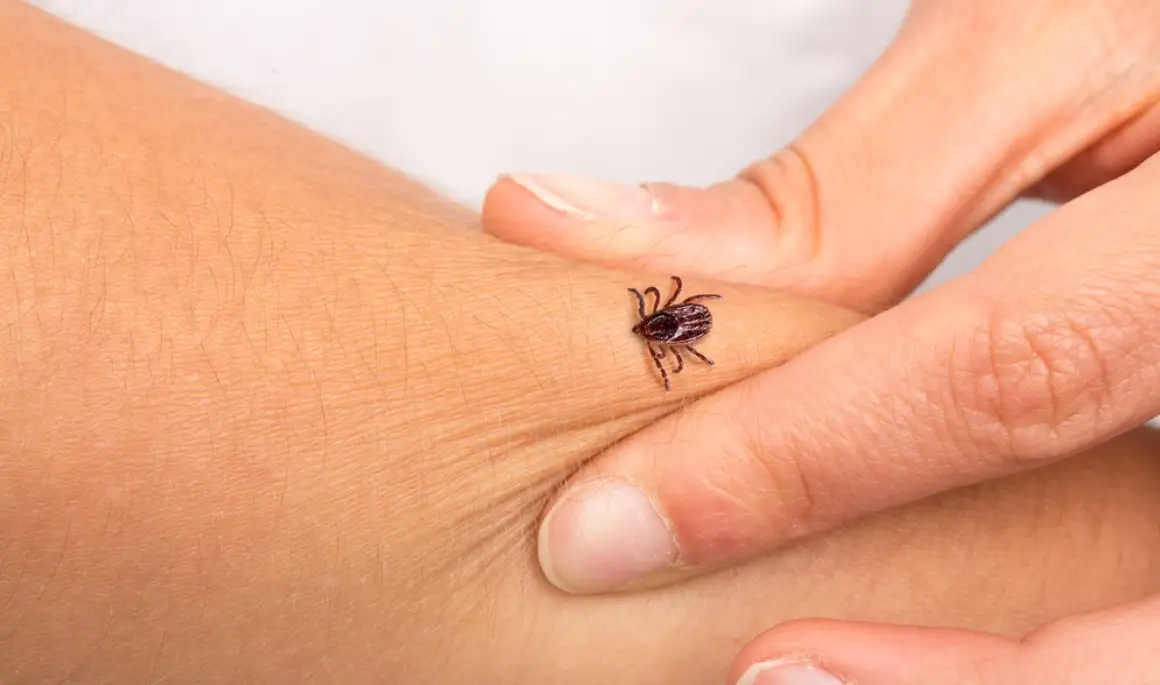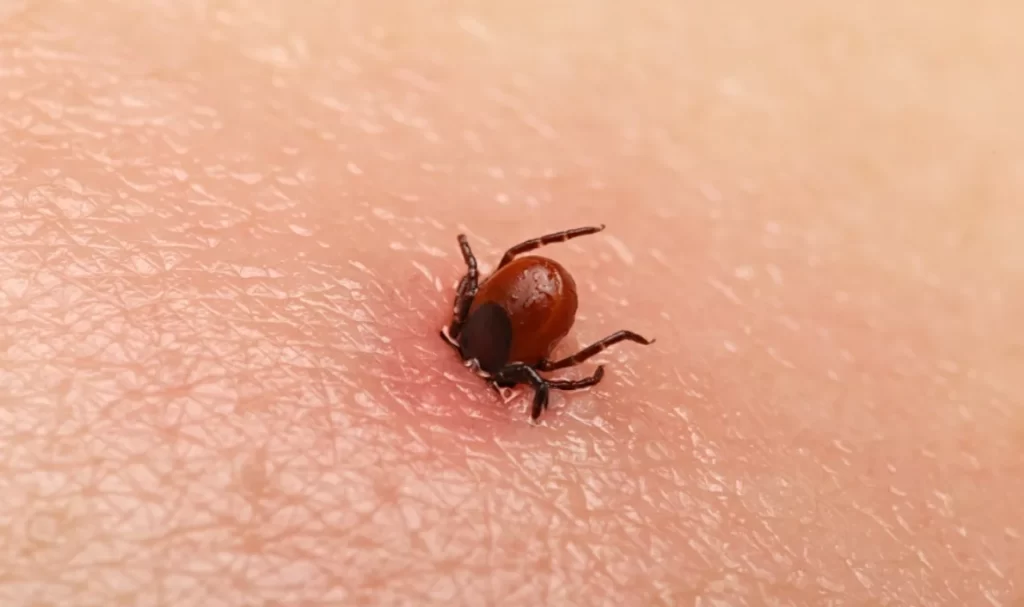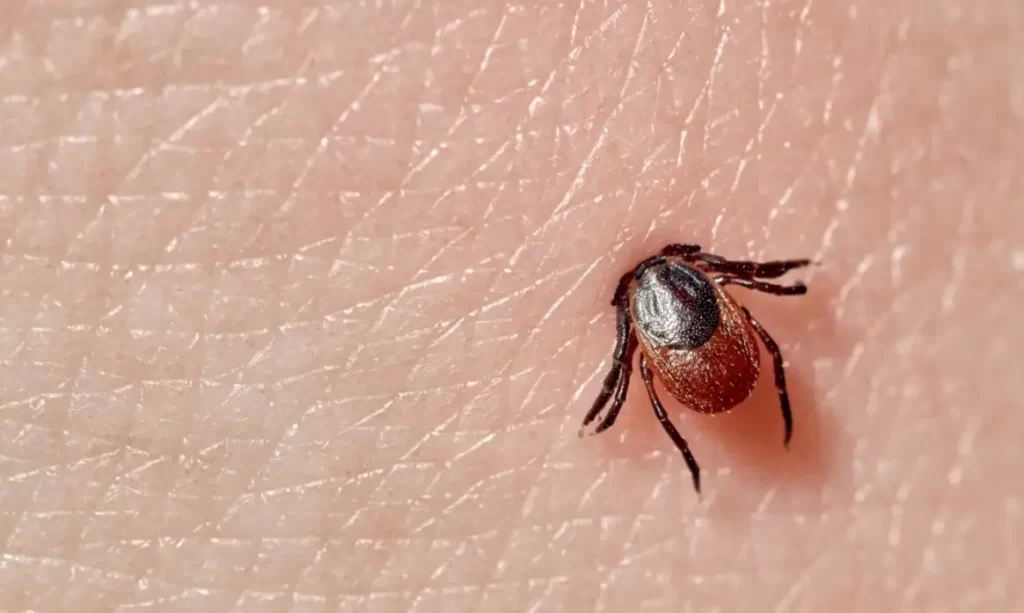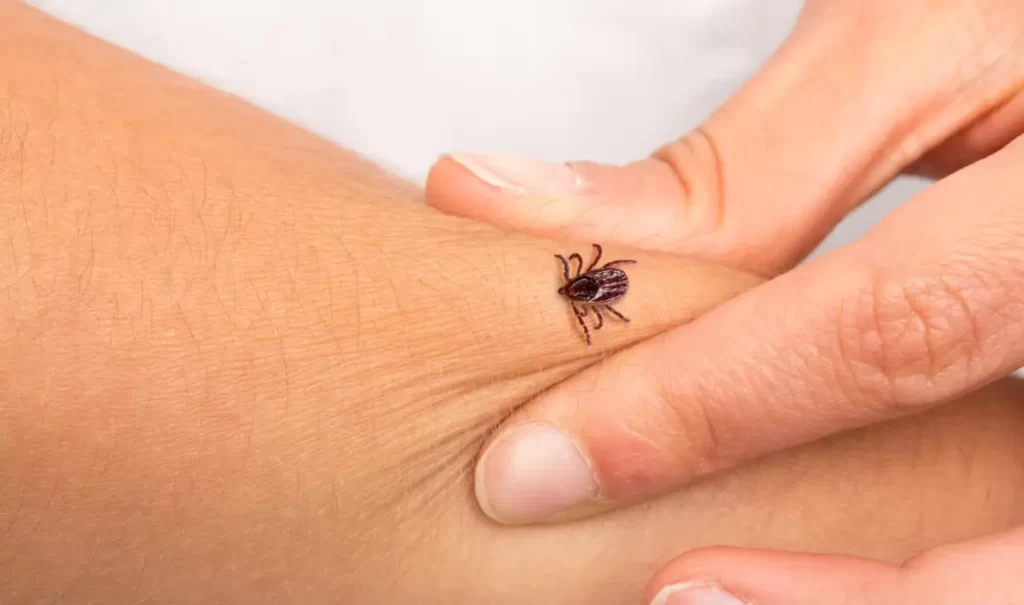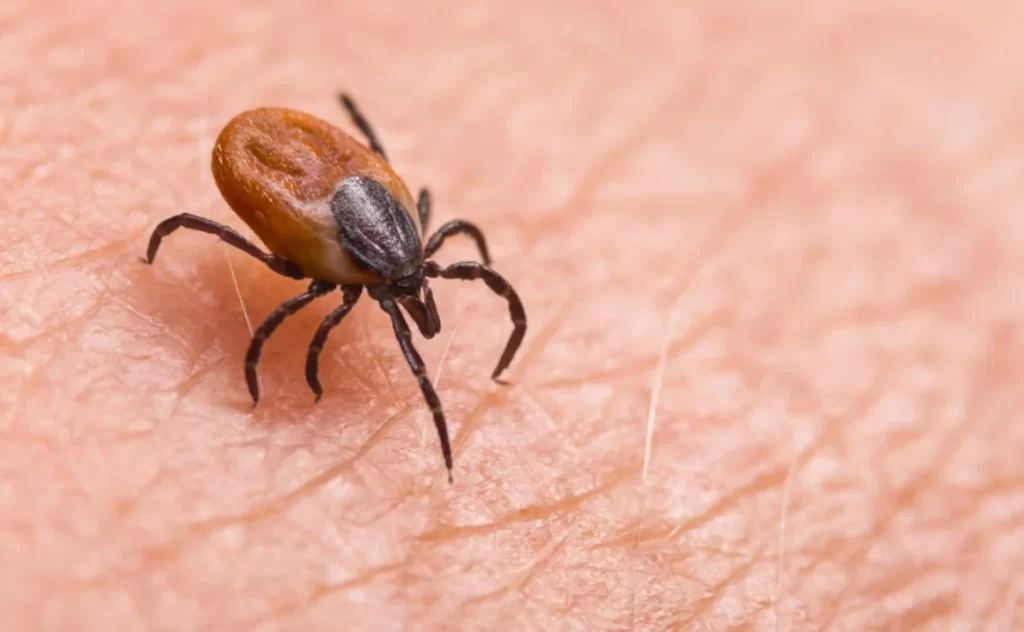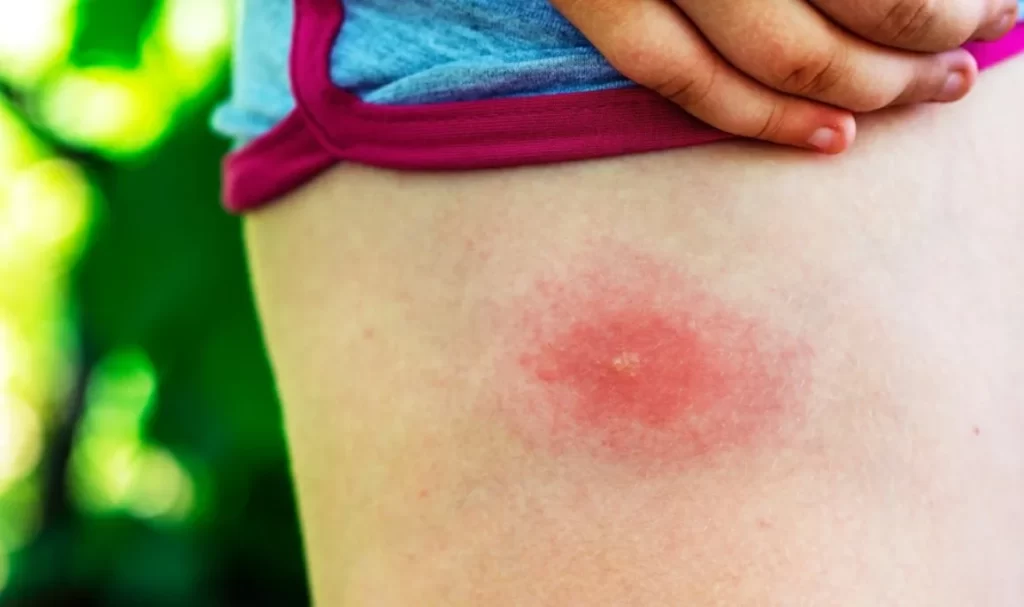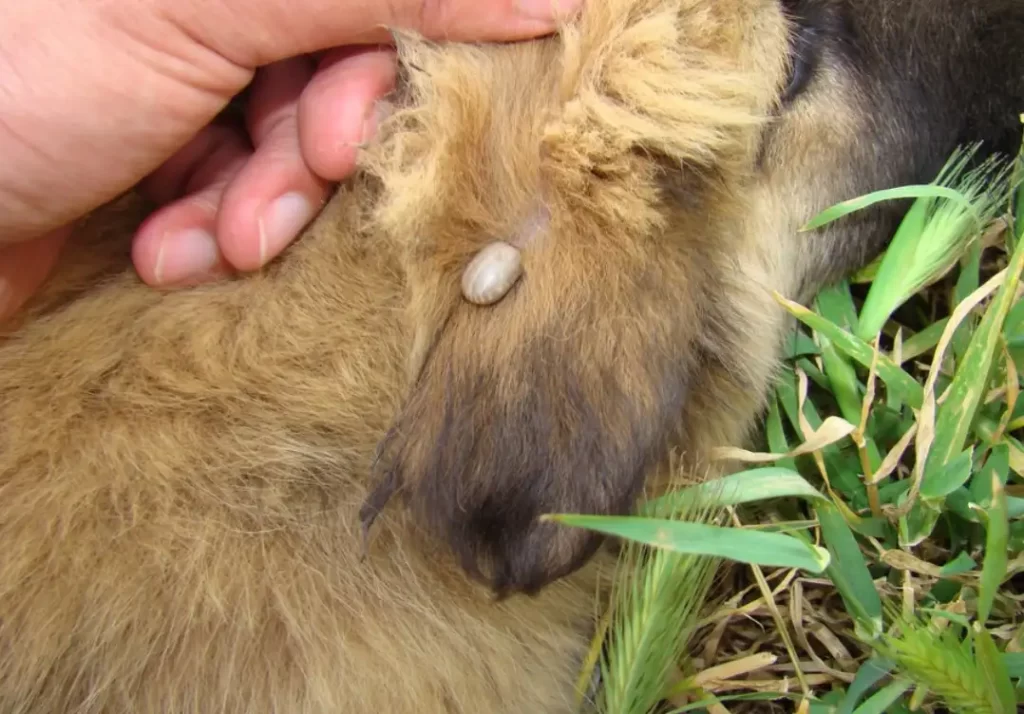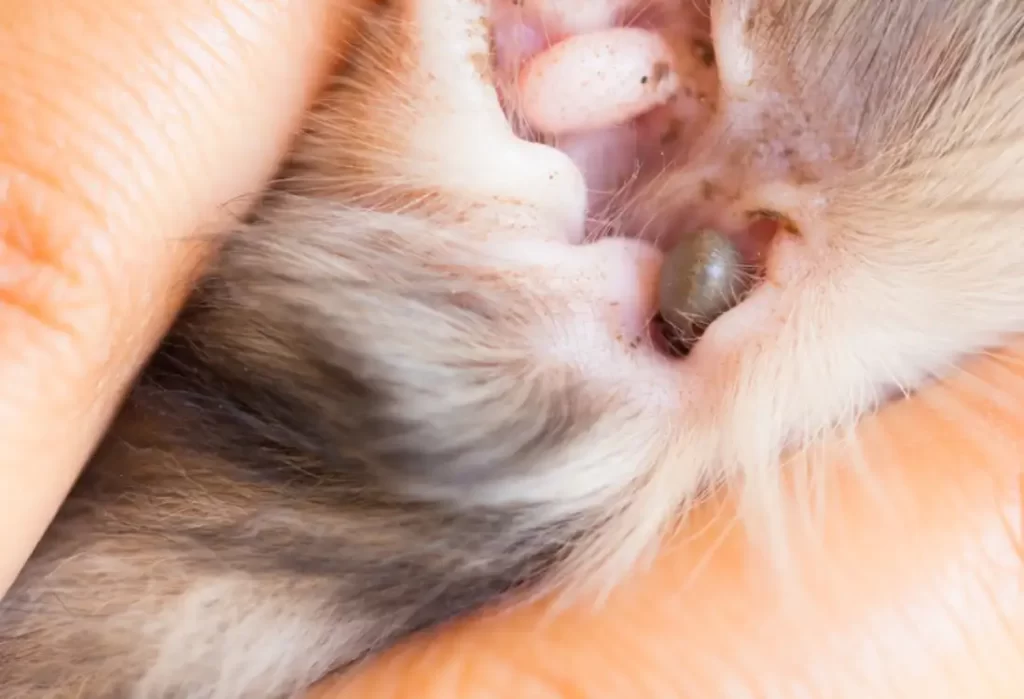How long can a tick live without a host? This is an important question that needs to be answered with accurate facts and figures.
Previous research has built a contrast by publishing different facts. Some claim that ticks can live up to two years and a few suggested that ticks can only survive up to 24 hours.
How could both claims be true? Before we reveal the accurate figure about how long can ticks live without a host? Let’s first discuss what are ticks and how they feed.
Ticks are parasites that typically live on the blood of animals or humans. They can survive for long periods of time without a host, but they are not able to live indefinitely without one.
In this article, you’ll get to know how long different types of tick’s species can survive without a host and how long they stick to their host.
Page Contents
What does a tick look like
What does a tick bite look like (tick bite pictures)
How long can a tick live without a host?
The capacity of a tick to survive without a host relies on a number of circumstances, such as the tick’s species, its habitat, and the availability of food and water.
Furthermore, their capacity to ingest determines how long they can live. As insects age from eggs to larvae to nymphs to adults, their ability to devour and ability to survive without a host both increase.
Depending on the conditions, ticks may live without a host for a few weeks to many months. To complete their life cycle without a host, ticks need a humid atmosphere.
How long can a nymph tick live without a host?
Nymph ticks are the second stage in the life cycle of ticks, and are typically smaller in size compared to adult ticks. Like adult ticks, nymphs require a host for their survival, and will attach themselves to animals or humans to feed on their blood.
Without a host, nymph ticks can survive for several weeks to several months, if the temperature is suitable.
In cooler temperatures, they may become dormant which slows down their metabolic activities and their life activities utilize minimum energy, so extend their life span.
Contrary, in warmer temperatures, their body receives external heat and they become more active. As a result, they burn more energy and look for a host for feeding.
And, if they don’t find any host within the next few weeks, they may die due to dehydration.
How long can a tick live on you?
Blood is necessary for tick survival and reproduction. As a rule, once they have attached themselves to a host, they will stay there until they are satiated with blood.
Depending on the size of the tick and the quantity of blood it must swallow, this might take many days.
If you do not inspect your body everyday, larvae may remain attached for up to three days and nymphs eat constantly for three to four days.
If left undisturbed, adult females may remain on the host body for seven to ten days. It also depends on whether you do daily body checks or not.
It is essential to remember that ticks may transfer illnesses to their hosts while eating. In order to reduce the danger of disease transmission, it is essential to remove ticks as quickly as possible.
Using fine-tipped tweezers to grip the tick as near to the skin as possible and gently pull it straight out is the most effective method.
How long can a dog tick live without a host?
Dog ticks are small, blood-sucking parasites that are commonly found on dogs. These pests are known to carry various diseases, including Lyme disease and Rocky Mountain spotted fever.
While dog ticks are typically found on their host, it is possible for them to survive without a host for a certain amount of time.
Except for a suitable environment, another factor that can affect the lifespan of a tick without a host is its stage of development. Ticks go through three stages of development: larva, nymph, and adult.
The larval stage is the shortest life span, and can last till a few weeks, while the nymph and adult stages can stay alive for several months. Ticks that are in the nymph or adult stage are more likely to survive without a host than those in the larval stage.
After exploding the eggs, larvae start crawling for a host to feed themselves. If larvae of dog ticks failed to find a host, they can still survive 540 days without sucking blood.
Nymphs can keep sucking blood for 3 to 11 days and feed enough blood to stay alive 585 if they couldn’t find a new host. Adult American dog ticks can search for more than 2 years for a host to suck their blood for feeding.
How long can a deer tick live without a host?
Deer ticks, also known as black-legged ticks, are a type of tick that feeds on the blood of mammals, including humans.
These ticks are known to carry and transmit diseases such as Lyme disease, making them a public health concern.
But how long can a deer tick live without a host? The answer depends on several factors, including the tick’s stage of life, feeding life span and the surrounding environment.
In general, adult deer ticks can survive without a host for several months. However, they are most active during the spring and fall when the weather is mild and they can easily find hosts to feed on.
Ticks prefer moist and shady areas, so they are more likely to survive in areas with high humidity and low temperatures. In dry and sunny conditions, ticks will dehydrate and die quickly.
As you are concerned about your house environment, deer ticks cannot survive more than 24 hours without feeding human blood.
Although, they can stay alive for up to 2-3 days on moist clothes in a hamper, as the humid environment is best suitable for deer ticks’ survival. Ticks that have taken a blood meal may survive a bit longer.
If you suspect the presence of deer ticks in your area, before throwing clothes in the washing machine, spin them for up to 10 minutes in the dryer for high heat to kill these disgusting devils.
How long can a wood tick live without a host?
Wood ticks are common pests that can be found in wooded areas throughout North America.
These ticks are known to feed on the blood of mammals, including dogs, humans, and even deer. But how long can a wood tick live without a host?
The answer depends on the stage of the tick’s life cycle. After hatching from eggs, larvae can crawl for 30 days to find a host for feeding.
In some cases, this period can extend up to 117 days. Once they turned into nymphs, they can bear the thirst for blood for more than 300 days and stay alive.
An adult wood tick can store enough nutrients to crawl for more than 600 days in the search of next host without dying.
But while adult wood ticks may be able to survive without a host for several months, they are not capable of reproducing without one. In order to lay eggs and continue the life cycle, wood ticks must feed on a host’s blood.
How long can a tick live in your house?
Ticks are parasitic creatures that feed on the blood of animals and humans. They are often found in densely wooded areas and thick grass, but they may even infiltrate your home.
But how long can ticks live in your house? The answer is dependent on a variety of factors, including the kind of tick and the environment within your home.
Some tick species may go for months without a blood meal, while others can go for up to a year.
The duration of a tick’s stay in your house is also affected by interior temperature and humidity.
Ticks prefer cooler, more humid environments, so they may survive longer in a wet basement or crawl space.
Once a tick has attached itself to a host, it may remain there for many days until being satisfied and sliding off. The tick may remain in your home during this time.
How long can ticks live?
There are a variety of factors that influence how long a tick lives, including the species, the habitat, and the availability of hosts.
Ticks may vary greatly in lifespan, with some species living for years and others for months at most.
A common vector of Lyme disease, the black-legged tick (also known as a deer tick) may remain viable for up to two years.
In contrast, the lifespan of the American dog tick, which is more common in the East and Central United States, is just approximately a year.
Generally speaking, the months of April and Summer are peak activity times for ticks since these conditions favor their survival.
They like to hang around in places where they may easily attach to passing animals or humans, such as areas with thick forests, tall grasses, and bushes.
How long can ticks live in a car?
As a humid environment is no less than a heaven for ticks same like that, a dry climate is hell for them. But how long can ticks live in a car?
The temperature and humidity inside a car can also affect how long ticks can survive.
In general, ticks thrive in temperatures between 50 and 80 degrees Fahrenheit and in high humidity levels.
Therefore, if a car is parked in a warm, humid area, ticks may be able to survive for longer periods of time. Otherwise, they cannot stay alive for more than 24 hours in your car.
Few species with high resilience, for example, the lone star tick and America dog tick can fight against the dry environment of your car and can stay alive even for a few months.
To prevent ticks from attaching themselves to your car and potentially hitchhiking inside, it’s important to take preventative measures.
This can include regularly checking your car for ticks, avoiding wooded or grassy areas, and keeping your windows and doors closed.
How long do ticks live on a dog?
Ticks are parasites that thrive on the blood of mammals, including dogs.
These small, eight-legged creatures can attach themselves to a dog’s skin and feed on its blood for several days before falling off or being removed. But how long do ticks live on a dog, and what can be done to prevent them?
All species of ticks feed on both animal and human blood but the American dog tick specifically attaches to a dog’s skin and quenches its thirst for blood.
An adult dog tick can stick for up to 36 hours with the skin of your dog till fully engorged. However, some ticks may survive for longer periods, especially in warm and humid environments.
One of the most effective ways to prevent ticks on your dog is to use tick-preventative products, such as spot-on treatments, collars, and sprays.
These products contain chemicals that kill ticks and prevent them from attaching to your dog’s skin.
You can also use natural tick repellents, such as essential oils, to prevent ticks from attaching to your dog.
Dog ear ticks pictures
How long can a tick live on a blanket?
The most popular areas for ticks to hide are in your bed sheet and blanket because they have easy access to your body.
When they have successfully bonded to the host’s body, they may feed on your blood without you even realizing it.
How long can a tick stay on a blanket before attaching to a host, and is it even feasible for them to thrive there?
The short answer is yes, ticks can survive for a while on a blanket. The duration of their life, however, is influenced by a number of variables, including the kind of tick, the environment’s temperature and humidity, and the accessibility of food supplies.
For instance, the ticks will most likely perish within a few days if the blanket is stored in a cold, dry environment.
Additionally, in order to live, ticks need a host to feed on. They will ultimately become hungry without a host.
As a result, if the blanket is not often used or inhabited by people or animals, the ticks will ultimately perish since they will have no food supply.
What happens if a tick does not find a host?
Ticks are pesky bloodsuckers and necessarily need blood to survive, molt, and reproduce. So, ticks need to find a host to attach to and feed on. But what happens if a tick does not find a host?
Almost all types of tick species require several hosts to feed and stay alive for a complete life span; for few ticks, such as the brown dog tick, can stick to a dog’s skin and keep feeding itself staying hidden under the hairy skin.
If a tick cannot find a host, they will burrow into the ground or hide in leaf litter and other debris, waiting for a potential host to pass by.
However, if the tick remains without a host for too long, it will eventually die from starvation.
Ticks need to feed regularly in order to sustain their metabolism and reproduce. Without a regular food source, the tick will gradually lose energy and die.
Can ticks live in your bed?
Ticks are often seen in grassy or forested environments where they may readily adhere to passing hosts. Can ticks, however, survive inside your bed?
Ticks find your bed, pillows, and blanket to be the most pleasant places to hide, thus the answer is yes, they can dwell in your bed.
Unless they are brought in from outside, ticks seldom invade dwellings. They really don’t have a specific place to reside; they’ll just settle anywhere they can find a good host to feed on.
Ticks like warm, moist conditions, which is why they are often found in places with high humidity levels.
This implies that your bed, with its warm and comfortable blankets and sheets, might serve as the ideal environment for ticks to flourish.
The first thing to do if you think you have ticks in your bed is to carefully check it, including the sheets, blankets, and mattress, for any ticks or tick eggs.
If you discover any, gently remove them with tweezers or a tick removal tool, then get rid of them the right way.
What kills ticks on dogs instantly?
There is no quick and easy way to eliminate ticks from dogs and cats. Tweezers are the most useful tool for removing ticks because they allow the tick to be grasped as closely to the skin as possible before it is yanked out in one motion.
It is important to get rid of the tick as soon as possible. In addition to this, it is essential to thoroughly clean the area around the bite with soap and water.
Does bathing your dog get rid of ticks?
Bathing your dog might assist in removing ticks from the skin’s surface. However, it may not eliminate every tick from the dog.
After a wash, it is essential to thoroughly inspect for ticks and remove any residual ticks with tweezers. Use of a tick-preventative product is also suggested to prevent ticks from adhering to the dog in the first place.
Why is my dog getting ticks all of a sudden?
There are many possible reasons why a dog suddenly develops a tick infection, including:
- The dog recently went to a place where ticks are prevalent, such a wooded or brushy area.
- Regular tick prevention methods, such as monthly medication or collars, have not been given to the dog.
- Due to the dog’s compromised immune system, tick infections may be more common.
- The dog recently came into contact with another animal that had ticks.
- Higher temperatures and excessive humidity may make the climate more conducive to tick activity.
Where do ticks hide the most on dogs?
The ears, neck, and underbelly of a dog are prime real estate for ticks because they provide the best attachment points.
As an alternative, you might look in the fur or skin folds around the limbs and tail.
Ticks thrive in warm, humid conditions and may be found almost everywhere, including the armpits, between the toes, the mouth, and even the nose.
Do ticks jump from dog to human?
While ticks can’t leap, they do have a number of different attachment strategies for when they find a host.
Ticks may transfer from dogs to humans because canines often visit tick-infested environments.
If a human comes into close touch with a dog that has a tick on it, the tick may jump to the person. Nonetheless, ticks are more likely to attach themselves to animals than to humans.
Final verdict
When you are out in the wilderness, you need to keep a careful eye out for ticks. They have the potential to live for a very long time given the right conditions (warm and humid).
Ticks are hardy creatures that can survive both harsh winters and hot summers. They are able to survive without food for a few months at a time.
After returning home from a pleasant excursion in nature or a stroll in the woods, you should thoroughly inspect your entire body for ticks. They are vile and have the potential to spread diseases that are quite harmful.
- Where Can I Purchase Bed Bug Bombs? - January 30, 2023
- Where Can I Buy Something to Kill Bed Bugs? - January 30, 2023
- Where Can I Buy Bed Bug Spray? - January 30, 2023
